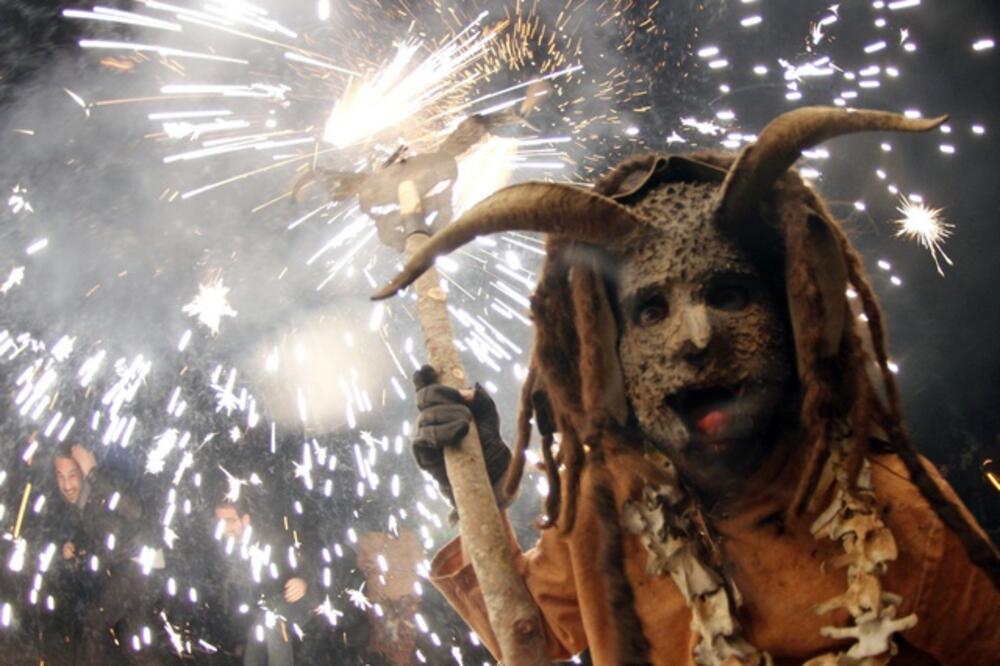The Devil is accused of something again? Too interesting to ignore. His back is loaded with too much...
Yes, we see, why is he being charged now? According to the claim of a certain abbot Nikodim (Dajbaba monastery) - "The Orthodox Church can never bless what was not created by God, and definitely the Montenegrin nation was not created by God, but is the fruit of human vanity and weakness, and in general, the creator of the Montenegrin nation is actually the Devil in essence things.”
I have always been fascinated by the ease with which some people interpret and explain the moves of God. It must be immediately clear to you that you are dealing with a fraudster, "basically".
Imagine the idea - that any abbot, or archpriest or whoever, explains to you what God wanted and did. Where did he get that knowledge from? Did God whisper that to him. (Isn't that some kind of the Devil himself?)
Basically - it's hard to imagine a more anti-Christian statement than this. The fact that it was uttered by a high priest points to pathological hatred. Hatred that deforms man and his mental apparatus.
Again, that way of thinking is also interesting - the abbot has no problem believing that God created wine flies, alligators, rats and skunks (not to mention ticks, there is no dispute there - because "All creatures are equally dear to God"), but, it cannot be that he also created the Montenegrins.
It would be interesting to know what it is in the cognitive cosmos of Nicodemus that makes him believe that wine flies or ticks are dearer to God and more significant than Montenegrins.
And only the hypocrisy of Metropolitan SPC Amfilohi, who dismissed the abbot from his duties. And he himself has stated similar or equally stupid and nonsensical things countless times, on the same occasion.
So - the matter is clear: from the abbot's point of view, from his reference system - he uttered the greatest possible insult and condemnation. And, no matter how you dismantle this nonsense, you won't go wrong.
However, I must admit that the abbot's statement took me in a slightly unusual direction... Namely, despite the completely different intentions of this shepherd (he knows how to deal with sheep), the idea of belonging to a nation created by the Devil seemed quite interesting to me.
Here are a few possible reasons, more like a suggestion for thinking...
No army has ever killed the weak and the poor claiming to do so "in the name of the Devil". In the name of God, many, or almost all, armies of the world did this.
When the "orthodox" kill the Albigensians, when asked how they will distinguish the righteous from the heretics, another Christian priest answers - kill everyone, God will discern.
Many people who bear the stamp of banality and nastiness on their foreheads, perfectly sincerely believe that they are doing things pleasing to God. They will tell you that - murderers, war criminals, fraudsters, manipulators... None of them ever invoked the Devil. (After all, those bizarre and colorful groups called Satanists are more of a pop-cultural than a metaphysical phenomenon.)
Kolakovsky (The Key to Heaven, Conversations with the Devil) depicts God as a man in fur, with red cheeks, who drinks only milk in the heavenly cafe, while the Devil is a thin, balding, nervous intellectual (in a checkered jacket) who, of course, drinks cognac.
My anarchist sense also reacts to this formulation - Lucifer, the fallen angel, is the first rebel against authority (and what kind of authority), and the fact that he rebelled even though he was "God's dearest angel" shows that in his holy act of rebellion, the Devil was immune to corruption. His "fall" makes him the first dissident.
Exactly those two facts - that he was a rebel (against the supreme authority) and that he was insensitive to corruption (great patronage) represent two key and final proofs that, to my great regret, the Devil does not stand behind the Montenegrin nation.
It should be remembered that the "rehabilitation" of the Devil was completely in the spirit of the romantic need to see things differently. For the "main villain" of Christian history to get the right to vote. The magnificent heresy of Njegoš is on that track.
(If you don't believe me, ask Amfilochius why the church never even thought of canonizing Njegoš, and they use him so banally, at every opportunity.) From Goethe and the romantics, through the master of masters, Charles Baudelaire or, a little later, the Italian bard Giosua Carducci ( Ode to Satan) to Bulgakov and many other writers The Devil is indeed thoroughly "defended".
“But who are you, after all? I am part of that force that eternally wants evil, and eternally creates good", reads Goethe's verse from Faust, which Bulgakov used as the motto of The Master and Margarita.
In rock music, the Devil is one of the most present motifs, but, that is not unusual, he is always found where freedom and passion are talked about. And when it comes to submission and modesty - then there is the other one...
Bonus video:





